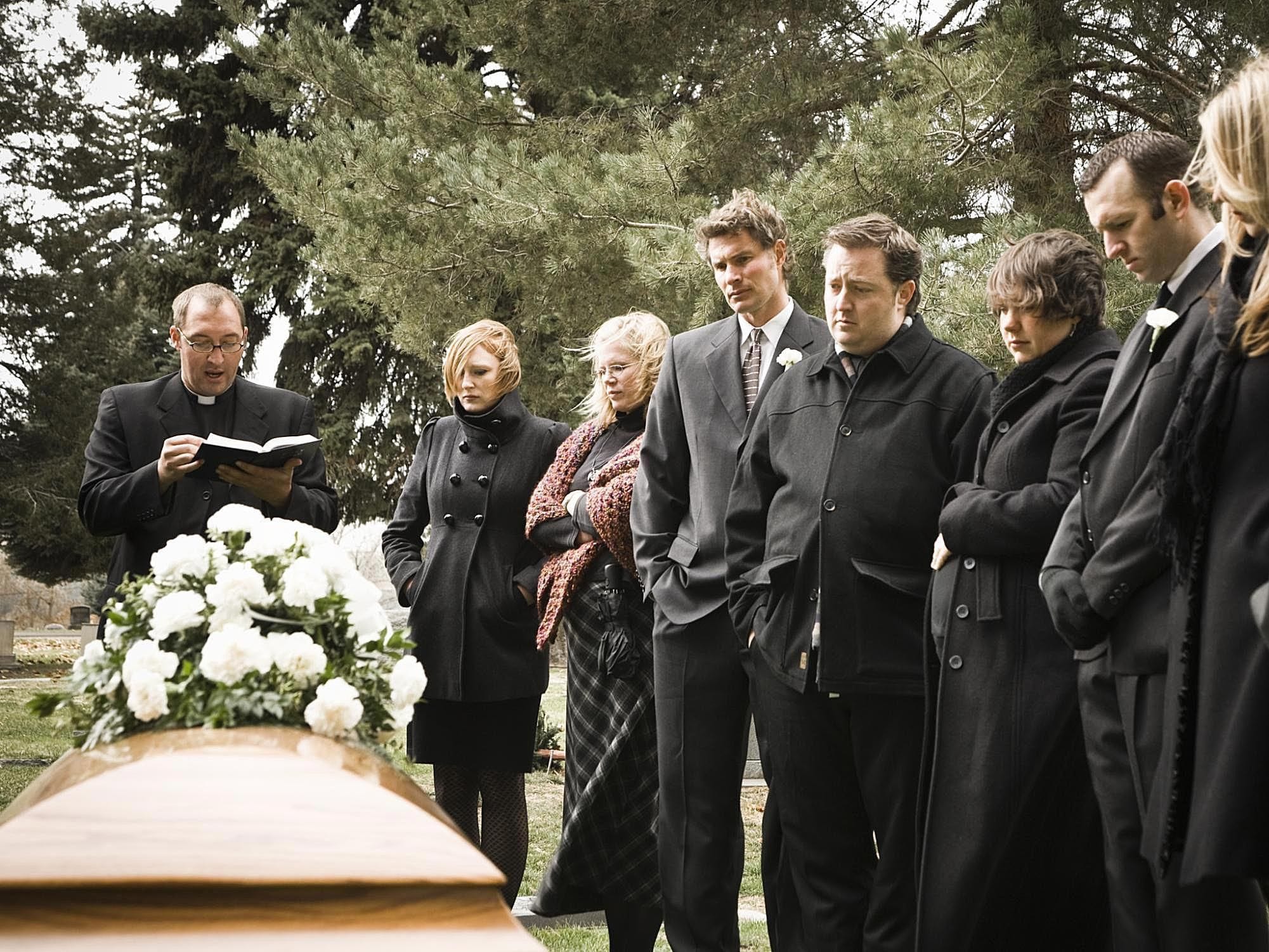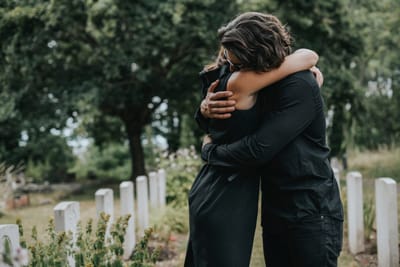How to Perform a Funeral

All cultures and belief systems around the world have distinct traditions for marking the passage of life into death. Funerals ceremonies honor the passing of a loved one, allowing family members and friends to share stories, express grief, and pay tribute to the person who has died. In many cultures, it serves as a final goodbye. The occasion also provides an outlet for communal sadness and builds a platform from which healing can begin. If you're in need of a minister to conduct a funeral, Get Ordained™ has a Find a Minister tool you can utilize to search for someone most capable of assisting you.
Performing a funeral is one of the most complex ceremonies for a minister or member of the clergy. As opposed to the emotional highs of a wedding, a funeral will involve expressions of intense sadness and grief. One must proceed carefully and respectfully, keeping ever in mind the emotional needs of everyone present.
In almost every faith, there are guidelines for performing end-of-life ceremonies; however, the specifics of a funeral service will ultimately be decided by each individual family's wishes. Below we have included some suggestions to assist you in conducting a fitting, personalized tribute to the life of the deceased.
Note: if you're interested in learning more about performing funerals and memorials, we offer a number of in-depth guides through our online ministry catalog.
Handling Religious Requests
If you conduct funerals on a regular basis, you are likely to encounter a wide array of belief systems. When meeting with the deceased's loved ones, take the time to learn exactly which religious components, if any, they wish to be incorporated in the ceremony. Common requests include reading passages of scripture and performing particular rites on the funeral day.
That being said, in recent years our ministers have reported an increase in requests for non-religious or humanistic ceremonies. In general, it's best to have a basic understanding of every approach. Recognize that you may be called upon to officiate a wide variety of funeral ceremonies.
Expectations for the Service
As a minister, it's your job to understand the family's wishes and conduct the ceremony in accordance with them. There are many different ceremony variations which fall under the larger category of "funeral," and you'll need to nail down the details early on in the planning stage. Start by contacting the family to get a feel for their expectations and then lay out an outline for the service.

Getting Ordained Online
As an ordained minister from Universal Life Church, you have the legal authority to preside over burials and funerals, officiate at weddings, and perform baptisms. Universal Life Church funeral ministers frequently perform funerals for members of their congregation, strangers, family, or friends. If you are looking to become ordained to perform funerals, the Universal Life Church offers a free, fast, convenient, and judicial method to become an ordained funeral minister legally online.
Sorting through all of the details surrounding a funeral service can be confusing, so be sure to utilize this helpful checklist we've put together.
Gathering Information
When speaking with the family, you should also make an effort to gather some basic information about the deceased. Remember, family members may still be in mourning, so tread carefully and back off if a subject is causing distress. You can ask things such as:
- Where were they born?
- Did they have siblings?
- What profession were they in?
- What was their personality like?
- What did they take pride in?
- Who were they closest to?
- What did they do for fun?
Any and all relevant information can be helpful in determining how you will structure a eulogy (should you be asked to deliver one). Take careful notes when meeting with the family. Even the smallest comment or anecdote can be incorporated and serve to make the ceremony both meaningful and memorable.
Drafting your Tribute or Eulogy

Note: although it's not uncommon for a family member or friend of the deceased to deliver the eulogy, in some cases the minister will be asked to perform this duty. Make sure to clarify this detail with the family early on.
Never written a eulogy before? No need to worry, it's not as complicated as you might think. For starters, there are plenty of example eulogies online that can be used to structure and format your work. After covering the basic formalities, do your best to personalize the eulogy using stories or personal details about the deceased. You might also consider adding meaningful quotes or lines of poetry -- whatever you think would be fitting.
After composing the eulogy, it is important to read it outloud to yourself. Not only will this give you an opportunity to refine your words in preparation for the ceremony, but practicing what you want to say beforehand will ensure that the eulogy is delivered smoothly.
Day of the Funeral
On the day of the ceremony, double-check all the important details such as its location, time, and order of events. Make sure you have all the necessary materials with you. Plan to arrive early and do a final practice run-through of the service. If you have not yet done so, now would be a good time to find the funeral director and introduce yourself.
During the service, make an effort to speak slowly and clearly. Remember to check your notes as you go -- even experienced ministers can lose their place. After the ceremony wraps up, plan to stick around to meet family and friends, give condolences, and offer words of support.
Conducting a funeral can be an intimidating process, especially if you've never done it before. However, with a little careful planning and preparation you can perform a funeral ceremony that pays meaningful tribute to the deceased and creates a sincere, lasting memory for their loved ones.